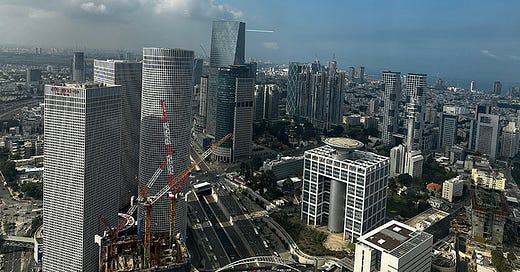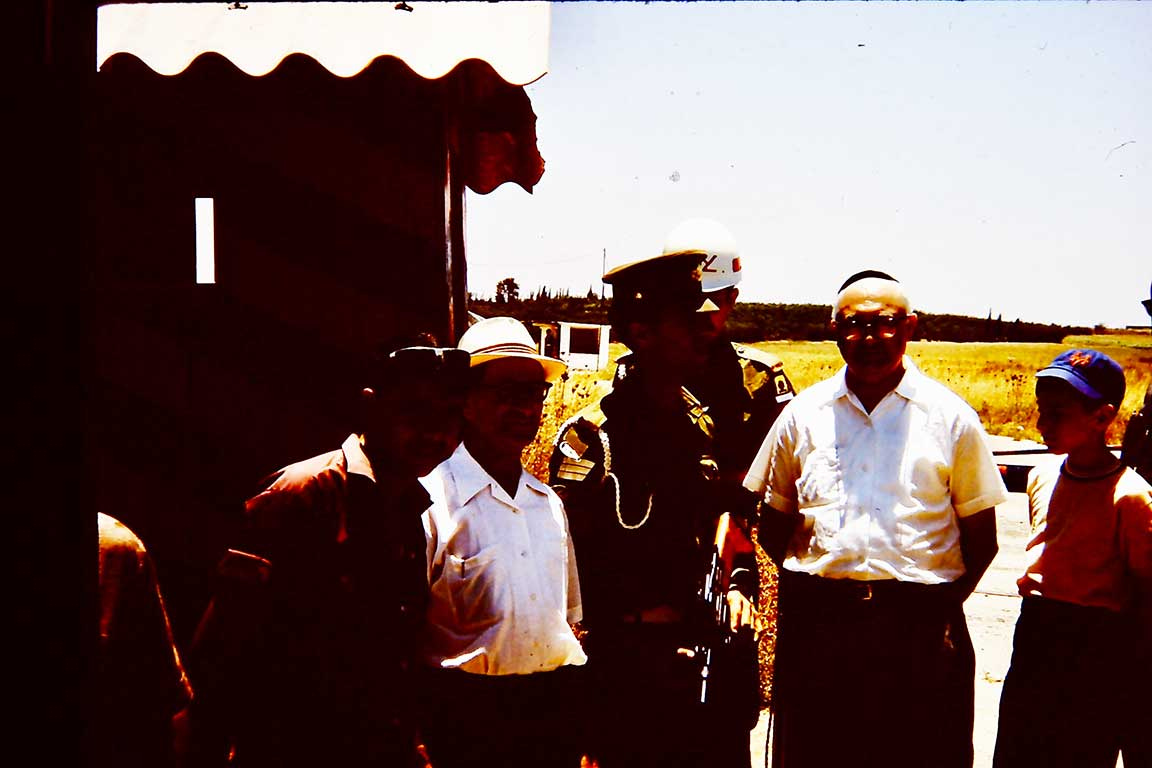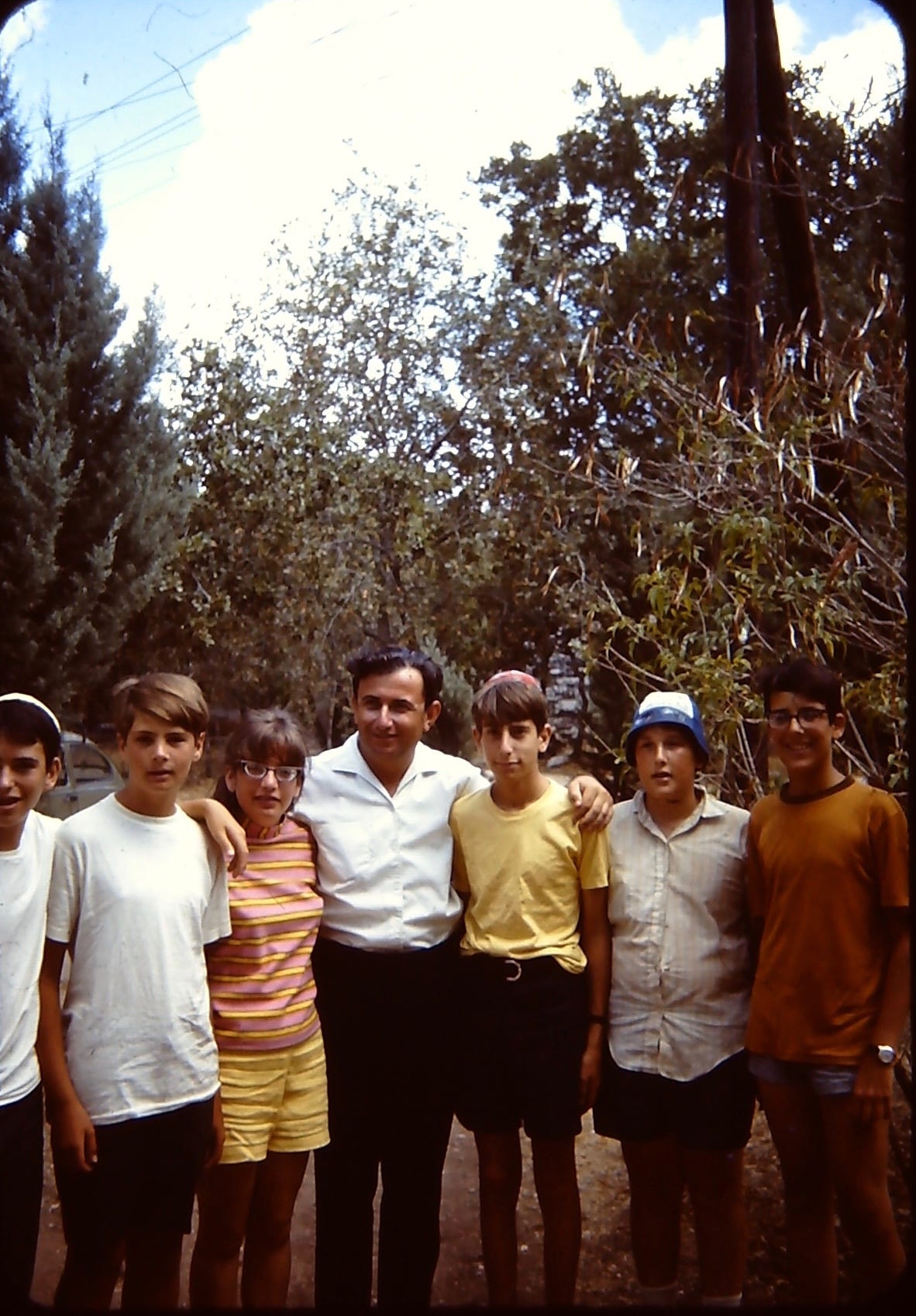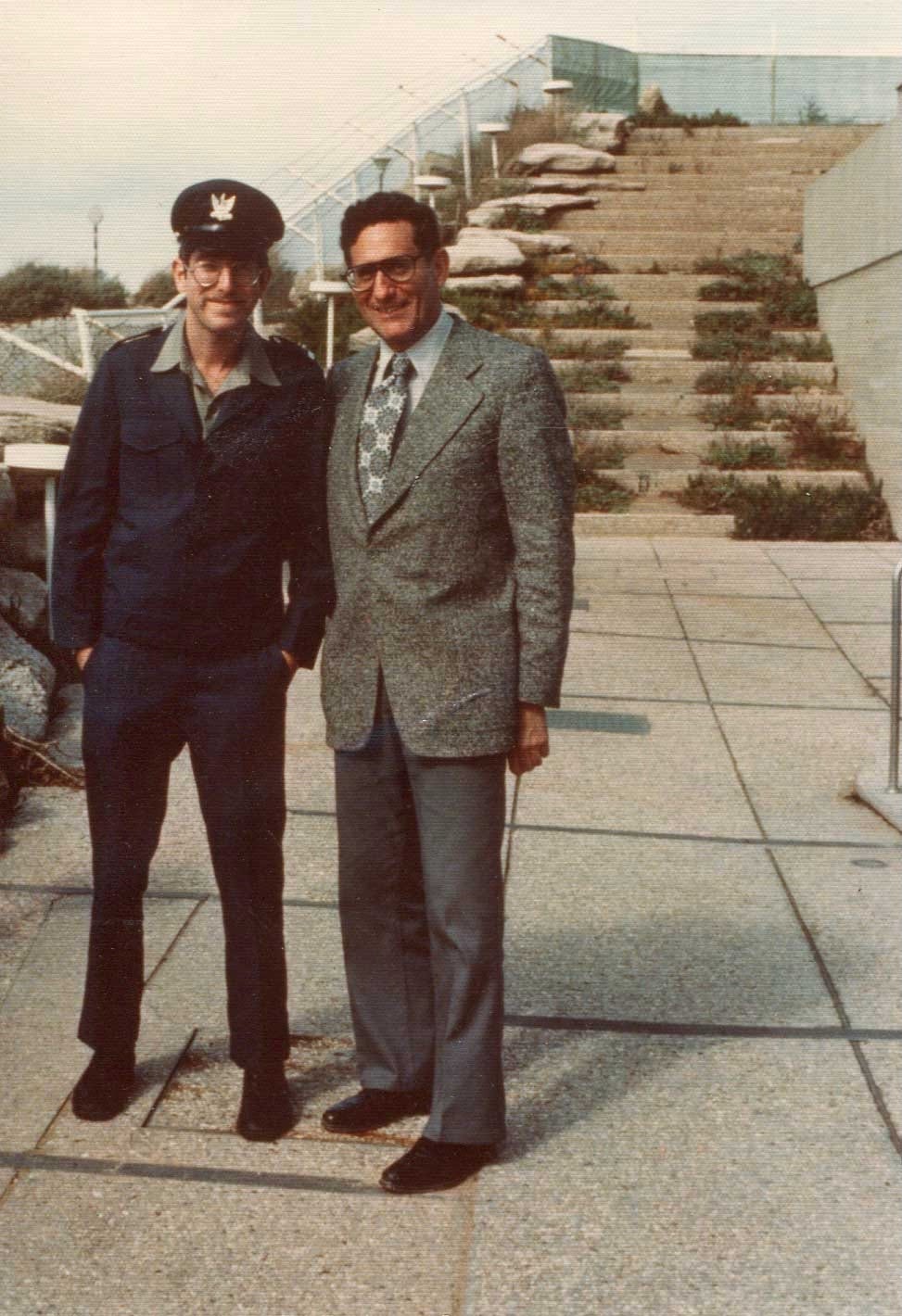DAY 220 OF THE WAR: Yom HaZikaron in the Midst of War, My First Love Turns 76, Memorial Day Messages
Tel Aviv Diary May 13, 2024
TOMORROW IS ISRAEL INDEPENDENCE DAY. THERE WILL BE NO DIARY TOMORROW. SUNDAY THERE WILL BE A ZOOM BRIEFING AT THE USUAL TIME
Today was the most difficult Memorial Day in Israel's history. Not only do we have numerous new soldiers and civilians to mourn, but we also have a government that most of the country believes should resign all while we faced a day marred by rockets and continued fighting. In Gaza, combat is taking place in three parts of the Strip: in the south on the outskirts of Rafah, in the center in Zietoun, and in the north in the Jabalya camp. The fighting has been intense in all locations. Five soldiers and one civilian contractor were severely wounded in the past day. Meanwhile, in northern Israel, Hezbollah has continued to fire missiles and rockets. One hit a tank, moderately injuring one soldier and lightly wounding three others.
Tonight is the birthday of my first love. She turns 76 today, and I am afraid she is not aging gracefully. I first fell in love with her when I was ten years old. I vividly remember our first ride from the airport to Haifa, passing through fields of sunflower seeds. I still remember my first visit to the then-divided capital, climbing to the top of the YMCA to view the Old City and taking a Shabbat morning walking tour of the Musrara neighborhood, located right next to the border that divided the city. I looked up to see a Jordanian machine gun not far away. I recall the joy of walking into a Brit Milah taking place in the same area. I remember myself standing next to a UN soldier at the border post along the Gaza border.
I still remember my fear during the weeks leading up to the Six-Day War and then holding my breath when the War broke out. Shortly after, as a 7th grader, I traveled to Washington to demonstrate my support for Israel along with the rest of my class.
The following summer, I visited Israel with a group of classmates on a Bar Mitzvah pilgrimage trip.
We were based in a youth village called “Alonei Yitzhak,” and I still remember how delicious the one type of ice cream pop they sold in the nearby village of Kiryat Atta, which was then just a couple of buildings. I also remember taking the train to Jerusalem—a very long train ride, where I met my parents in a city that seemed to have buildings going up everywhere. A city that had already been transformed from the divided city I remembered from just a few years before. I returned every summer for the next seven years.
One year, I spent a few weeks on Kibbutz Sa’ad, which seemed miles from the Gaza border. I learned to love Chulent there. I spent ten days hiking the Sinai, climbing what is thought to be Mt. Sinai to watch the sunrise, and swimming at the beaches of Sharm El Sheikh. One summer, I was given a bus pass by the Jewish Agency, for whom I was working, and spent it crisscrossing the country and speaking to different groups wherever they were.
My love for the country continued to grow all the time. I was aware this place was far from perfect, as I had the opportunity to spend a few weeks in a Development Town—a subject about which I wrote a great deal in college. I met with Israeli Black Panthers on several occasions to hear their stories and concerns. Despite these challenges, my love for the country only deepened. I knew this was where I belonged and where I wanted to spend my life.
There were moments of fear—like in October 1973 when I was sitting comfortably in the synagogue in New Rochelle and heard rumors that Israel had been attacked—I rushed out of the shul to a nearby barber, where a television was broadcasting the news. It was a very tense week, but since I was working at the Jewish Agency for Israel while in school, I was at least with people who shared my dread and fear. We all breathed a collective sigh of relief when the war ended. Still, the price was heavy, a reality I did not fully comprehend until the following summer when I attended a reinterment ceremony on Mt. Herzl. Finally, it was time to make a permanent commitment and make Aliyah. My Aliyah was a bit unconventional, as three close friends—all of whom remain dear to me today— and I did not leave on the typical El Al Aliyah flight. Instead, we flew on a Finnair plane bound for Moscow, but that’s a story for another day. When we finally landed in Tel Aviv three weeks later, we were met by someone holding our Aliyah papers.
A few months later, I was drafted into the Army along with a group of friends. It was an Army still grappling with the losses of the Yom Kippur War. I vividly remember the chill that swept through me during our swearing-in ceremony in basic training when we received our Tanakh. I had already spent nearly a week patrolling the Casbah of Nablus and protecting Joseph’s tomb—but that story is also for another day.
As an only child, I was not assigned to a combat unit for my military service (though that changed in the reserves). I had the privilege of becoming an officer in the Air Force and undertaking a project that involved interactions with many of the Air Force's high-ranking officers— a privilege that I still cherish to this day.
My Army experience was unlike that of many of my friends, and, in many ways, it shielded me from some of the country's issues. Even then, I realized things were far from perfect. I became somewhat involved in a new political party, Dash, which was dedicated to reforming a political system that was already not functioning well. After the army, I went into business, where I encountered some of the other problems Israel faced. I also came face to face with one of the central problems we face. In my reserve duty in the early ‘80s, where I served as a combat soldier, I had the dubious “pleasure” of spending a summer in Gaza, patrolling areas like Deir el-Balah. It was there I learned that despite the best intentions, any occupation is often brutal and ultimately self-defeating.
During this period, I celebrated the birth of my first Sabra. Shortly after, I returned to the States due to challenges in my family’s business, which were unrelated to Israel. While back, I stayed in close touch with Israel, working for the Jewish Agency in New York, as I pursued my graduate degree. The years passed, and both Israel and I were no longer so young. I moved back to Israel for a few years and welcomed another Sabra. However, I eventually found myself returning to the US again, a decision that did not reflect any lessening of my love for Israel.
Finally, 13 years ago, my family and I returned to find a country that had significantly matured. When I first got to know Israel, it was essentially a poor, third-world country. However, by the time we returned to live in Tel Aviv, it had evolved into mostly a first-world country with all the associated comforts. Living in Tel Aviv, I’ve witnessed the city's remarkable transformation; dozens of skyscrapers and high-rise apartments have reshaped the skyline. The city I first visited as a child, where decent meals were found only in hotels, has become a foodie’s paradise.
Over the past several years, I have had the privilege of meeting many Israeli high-tech business people and writing about their ventures for the various publications I have written for. I have lived through small wars with missile attacks on Tel Aviv while writing almost daily columns for Newsweek. Eight years ago, in an unexpected turn of events, I began working part-time as a television commentator. This role placed me live on the air, providing commentary on many of the major news events since then. Throughout it all, I have remained optimistic, feeling the best was ahead for the country I love so much. My fear always tempered that optimism that any future peace between us and the Palestinians was becoming ever more distant. In recent years, our high-tech industries have continued to flower. However, the refusal of one of our leading politicians to leave politics after his indictment and the start of his trial created an ongoing political crisis that seemed unending.
When, after the last election, the indicted politician finally put together a government, I wrote a piece titled: “Israel’s Greatest Enemy Is Now Itself.” Sadly, my observations were quickly proven to be correct. Days after its inauguration, the new government set a course to fundamentally alter some of the basic principles of democracy. The new government’s plans prompted nearly half of the country to take to the streets in protest. I joined them, and for ten months, every Saturday night—plus a number of times during the week—I was out in the streets. Although I feared for our democracy, I was encouraged and inspired by the movement I felt part of; people who had previously been indifferent to the direction of the country were now suddenly engaged and willing to take action.
Once again, I was optimistic—and then came October 7th. Since then, it has been a relentless cascade of bad news. An Army that was caught unprepared was revealed to be too small to accomplish the task before us, along with leadership too self-serving, incompetent and caught up in their own ideologies to steer our ship through safe harbors.
So here we are … Today, my lifelong love turns 76, and she faces challenges like never before in her life. One hundred thousand of her citizens have been forced from their homes, and over 100 of citizens have been held captive for more than seven months. I fear for my love more than I ever have before. I yearn for the leadership of old—the Ben Gurion, the Rabins, and even the Begins, but they are long gone. Now, I can only hope that a new crew of leaders will emerge to sail my love back to safe harbors once again.
SOME REMARKS DELIVERED AT TODAY’S MEMORIAL DAY CEREMONIES
SHIN BET CHIEF RONEN BAR
Ten more photos have been added to the Shin Bet's bereaved family this year. Behind each image is a whole world. On paper, they are all very different. But when you look into their eyes, you see the commonality.
It's a Memorial Day with a very heavy sense of oppression — in the country, in the Shin Bet, and again also for me personally. We all feel that the security blanket on which we always prided ourselves — we failed to provide for the people of Israel on October 7. We all feel the failure, the feeling that we could have prevented it — and as the head of the organization responsible for its operations, I feel it perhaps more than anyone else.
Keep reading with a 7-day free trial
Subscribe to Tel Aviv Diary to keep reading this post and get 7 days of free access to the full post archives.







